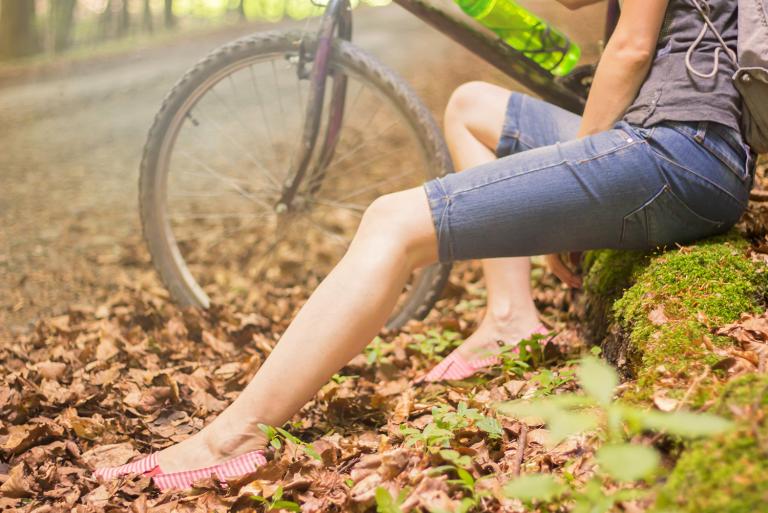Veins have one primary job: Returning blood to the heart and lungs to be reloaded with oxygen before it heads back out in the body again. A few things can go wrong with this part of the circulation system, generally falling into the two categories of blood clots or “insufficiency.”
Insufficiency describes a poor or sluggish return of the blood to the heart. This insufficiency is mostly associated with cosmetic and uncomfortable (but not life-threatening) symptoms. Fortunately, diet and lifestyle changes can provide some relief for insufficiency disorders.
Varicose Veins
When improperly working valves allow blood to accumulate in the veins, it stretches them out of shape and can lead to the swollen, bulging blue veins called varicose veins. The legs are a common location for this venous insufficiency problem.
What Causes Varicose Veins?
Varicose veins may cause an achy, heavy feeling as well as leg cramps, itching, and throbbing. Sitting or standing in one place exacerbates the symptoms. Women experience these more often than men, in part because pregnancy ups the risk, as extra blood present throughout pregnancy tends to pool in the legs, enlarging veins. To make matters worse, the weight of an expanding uterus puts extra pressure on leg veins, while pregnancy hormones promote relaxation in the walls of veins. This all adds up to a case of varicose veins for many pregnant women.
Heredity can make you susceptible to varicose veins, but diet and lifestyle can tilt the scales away from their development. Walking is great for anyone with varicose veins, while cycling and other low-impact exercises can also help.
Dietary Protection for Healthier Veins
The best dietary protection for healthier veins is to focus on fruits, vegetables, whole grains, and lean sources of protein. Also eat plenty of foods high in vitamin C, such as citrus, green peppers, and berries, as this vitamin helps to strengthen vein walls.
Supplements for Strengthening Veins
As for supplements, the antioxidant Pycnogenol (derived from pine bark) leads the pack in terms of easing the symptoms of varicose veins. Pycnogenol supports healthy circulation and performs on par with compression stockings, yet does not come with the discomfort (especially in warmer climates!) of wearing compression stockings.
Herbal supplements for strengthening veins include horse chestnut and butcher’s broom. Horse chestnut extract promotes healthy circulation in the veins while also reducing swelling. Butcher’s broom is used by many of those with vein conditions, such as varicose veins, with positive outcomes. Vein-supporting supplements are available as both oral and topical formulas.
Hemorrhoids
More than half of the population will experience hemorrhoids at some point. They’re actually just varicose veins that occur in the anus and rectum. In general, they are the result of excessive pressure on the veins in that area. They’re more common with advancing age, during pregnancy, or in those who have a family history of hemorrhoids, over use laxatives or enemas, or experience frequent constipation or diarrhea.
Hemorrhoid Symptoms
Hemorrhoids are classified as either internal or external, depending on their location. External hemorrhoids feel like hard lumps and are very sensitive. Internal hemorrhoids may protrude during bowel movements, which may or may not be painful. Other symptoms of hemorrhoids are itching in the anal area or bleeding during bowel movements. The straining that accompanies constipation places extra pressure on the affected veins, either causing or worsening hemorrhoids. Therefore, treating underlying constipation is an important first step for resolving them.
People who have a high fiber intake are less likely to develop hemorrhoids. But remember to drink more fluids anytime you eat extra fiber. The insoluble form of fiber, which is primarily found in whole grains and vegetables, makes the stool softer, bulkier, and easier to pass. Supplementary fibers, such as psyllium seeds, may also be used to increase fiber intake.
Supplements for Hemorrhoid Relief
The herb horse chestnut as an oral supplement may help shrink hemorrhoids. Research has documented benefits from horse chestnut extract in just under a week of daily use. Alternatively, it can be applied as an ointment to the affected area a few times a day.

